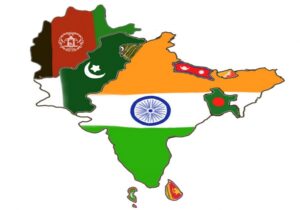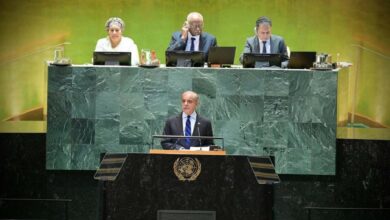That is why South Asia is the most ‘divided’ region in the world
South Asian countries are the most divided in the whole world and the relationship between them is much more complicated, commented Dr. Dr. Irfan Nooruddin.
This researcher, who has conducted several studies on economic development, globalization, democracy and democratization and conflict resolution, told the BBC that South Asia is the least integrated and integrated region in the world. There is no other region in the world where movement from one country to another or cross-border communication is as difficult and complicated.
Referring to commercial relations, he said that the amount of intra-trade between the underdeveloped economies of sub-Saharan Africa is less than the amount of trade between the countries of South Asia. While more than 200 million people live in these few countries, it could easily become the main economic center of the world.
Analyzing the reasons behind this, this international relations analyst on India also said that one does not need to be a rocket scientist to understand that the relations between India, the largest and most influential country in the region, are not easy and natural. And if India’s foreign policy is dissected, it can be seen that they have never pursued a multi-dimensional policy with the aim of establishing long-term relations with any of their neighbours, be it Maldives, Sri Lanka or Nepal. Priority has always been given to short-term interests, and to that end a narrow, dubious one-dimensional policy has been pursued.’
As the country’s current government of Narendra Modi has sought to establish its ‘Hindu identity’ as a major pillar of foreign policy – and that has, as usual, backfired in several Muslim-majority countries like Bangladesh.
The main objective of the Citizenship Act brought by the staunch Hindutva BJP government was therefore to present the Indian state as the last refuge of Hindus. BJP leaders and ministers have continuously used the word ‘Bangladeshi’ as a proxy for illegal Muslim infiltrators within the country, while on the other hand they have continuously claimed that bilateral relations with Bangladesh have improved greatly. But there is a serious antagonism between these two, which could not be kept under wraps for long.
In this context, he also said that in the last decade, we have seen in many neighboring countries of India that the government of that country may be very friendly towards India – but the common people of that country are bubbling with anti-India. This same thing happened in Bangladesh, Nepal and Maldives.
But for the sake of stability or democracy, India has never tried to understand the anger or demands of the people of those countries, rather it has assumed that their interests will be protected only if the government of that country is on their side.
And the reason for this is simple, as I said earlier – India has moved ahead with its short-term interests in neighboring countries, never thinking about what will happen in the long run. And they have to suffer the consequences in one country after another.
As a result, most of the citizens and part of the governments of the smaller South Asian countries see India as a regional hegemonic power.
If it wants to establish itself as a regional superpower, New Delhi must also fulfill some moral responsibilities towards these countries and develop a ‘multidimensional’ relationship. That effort has not been seen so far, at least in the BJP government.





